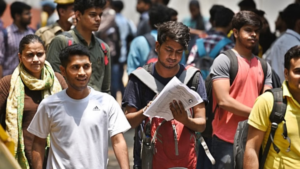Gandhi Jayanti is celebrated every year on 2nd October to honour Mahatma Gandhi’s birth anniversary and remember his vital contributions to India’s freedom struggle and the world’s peace movements.
The Birth Anniversary of Mahatma Gandhi
Gandhi Jayanti marks the birthday of Mohandas Karamchand Gandhi, born on October 2, 1869, in Porbandar, Gujarat. Gandhi is lovingly called ‘Bapu’ and ‘Father of the Nation’ because he led India to independence using peaceful means. This day is one of the three major national holidays in India, and is celebrated in all Indian states, with schools, government offices, and banks closed.
Gandhi Jayanti is not just an Indian holiday, 2nd October is also celebrated worldwide as the International Day of Non-Violence, declared by the United Nations.
Gandhi’s Principles and India’s Freedom
Gandhi Jayanti reminds everyone of Mahatma Gandhi’s values of non-violence (Ahimsa), truth (Satya), and peaceful resistance (Satyagraha). He inspired millions during the freedom struggle through important movements like Non-Cooperation, the Salt March, and the Quit India Movement. His leadership brought people together across religions and castes, and his philosophy continues to inspire leaders and common people around the globe.
Gandhi was the first Indian to be chosen as Time magazine’s ‘Man of the Year’ in 1930.
Gandhi Jayanti Celebrations and Traditions
Every year, prayer services and cultural programmes are arranged. Leaders and citizens pay tribute at Raj Ghat in New Delhi, where Gandhi was cremated. Schools and colleges organise essay competitions, plays, and singing of Gandhi’s favourite bhajan “Raghupati Raghava Raja Ram”. Cleanliness drives and social service activities often happen, supporting Gandhi’s ideas about hygiene and self-reliance.
Gandhi established the Tolstoy Farm in South Africa for his colleagues in the Satyagraha struggle.
Why Gandhi Jayanti Matters Today
Celebrating Gandhi Jayanti every year helps keep alive Gandhi’s legacy of non-violence and truth. People learn not only about India’s history, but also about the value of peace and tolerance in everyday life. It reminds everyone to seek solutions through dialogue, kindness, and service, making the world a better place for all.
Gandhi’s birthday falls on Friday; coincidentally, India got independence and he was assassinated on Fridays too.
Gandhi Jayanti: Facts & Importance
- Gandhi Jayanti became a national holiday in 1949, two years after India gained independence.
- In 2007, the UN declared 2nd October as the International Day of Non-Violence to mark Gandhi’s global influence.
- The occasion is not just to honour Gandhi’s life but also to encourage values like peace, tolerance, and honesty among everyone.
- It is an opportunity for reflection for youth and elders on how Gandhi’s simple ways and deep thoughts can be applied in solving modern problems.
- The day spreads awareness about Gandhian principles, teaching everyone lessons about living peacefully, respecting others, and working for community welfare.




 Daily Current Affairs Quiz 23rd February...
Daily Current Affairs Quiz 23rd February...
 Bank of Baroda Office Assistant Exam Ana...
Bank of Baroda Office Assistant Exam Ana...
 Bank of Baroda Office Assistant Memory B...
Bank of Baroda Office Assistant Memory B...








